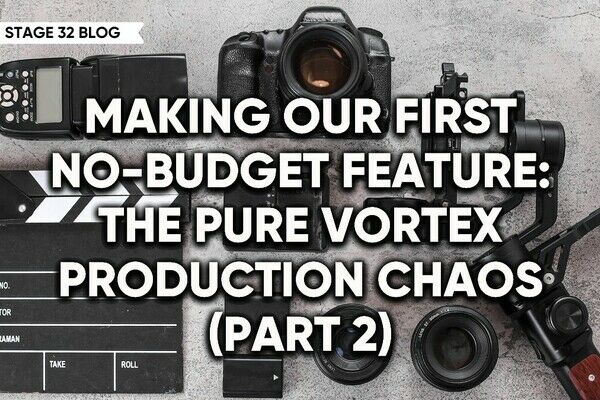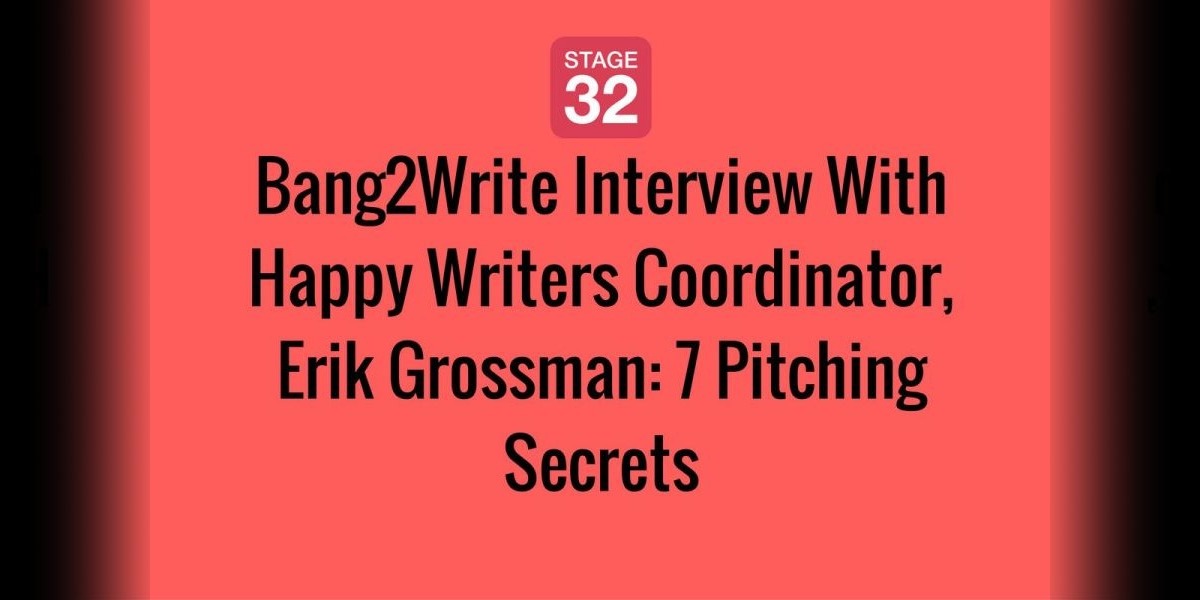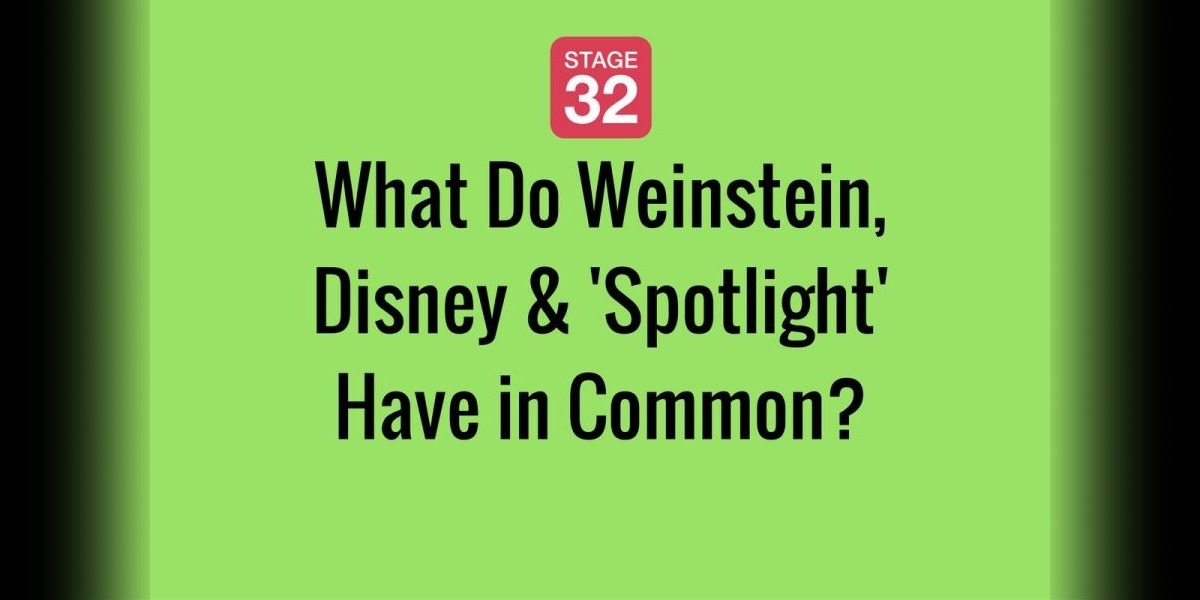You’re The Voice (Try & Understand It) - A Guide For Budding Voice Over Artists
Three years ago I decided to leave my comfortable and regular employment as an agency director to pursue a long-held ambition to become a voice over artist. I had limited previous experience in voice over work having scripted and provided the voice overs for a few radio adverts and corporate videos.
Since that time I have been lucky enough to work with clients such as Disney, Ladbrokes, The World Health Organisation and Soda Stream (to name but a few)…….but the work required to break into the world of voice overs has taught me a lot over the last few years; some good some bad. It`s a challenging and competitive industry and it can be easy to get despondent when the jobs don`t materialise. You start to question your own abilities, confidence can wane and, worse, doubt you have a voice that anyone wants to hear! So here a few tips from me on what might give you some edge should you decide to pursue a career in this field.
Don`t give up the day job!
Unless you are fortunate enough to have an agent or client supplying you with regular work from the outset, don`t rely on voice over work paying your bills from day one. One of the advantages of voice over work is that you can work from home and often across different time zones, so evenings and weekends can be utilised to your benefit. Consider starting your voice over work as a part time career, perhaps holding down another job to pay the bills while you build up your client base and reputation. This might sound defeatist but it`s a practical consideration. I was perhaps somewhat naive when I started out, believing everyone would want to hire me from day one. They didn`t!
Consider getting a voice coach
It`s worth investing in a voice coach . You are bound to find a professional voice over course near you or even on-line. You will need to be prepared to invest a bit of money but most voice coaches offer you the opportunity to record in a professional environment with an engineer and mentoring from an established voice talent. Most importantly, you`ll end up with a show reel of sorts that you can start getting out to prospective clients and/or voice agencies. Typically a good show reel will include a commercial, corporate narration, character voices (if you can do them) and a reading passage for potential audiobook work. Don`t worry if it`s not this comprehensive. It depends on the type of work you think you may be best suited to and, invariably, once you become more experienced, you`ll develop your own demos that best demonstrate your versatility and voice styles. (I rarely use my original show reel nowadays, but it got me started!)
Get your home studio in order
Don`t believe some of the hype surrounding audio equipment! Assuming you have a laptop/desktop and good internet connection, you can set up a perfectly good home studio for as little as £150! Basically, you will need a good quality USB microphone, a pre-amp and a suitably sound proofed location to make your audio recordings. I use a wardrobe lined with noise reducing foam panels….basic but effective!
Do get some advice on setting up your studio. You can find great free tutorials online but in my opinion, hiring an audio engineer who can come to your workplace for a couple of hours will get you up and running much more quickly and is well worth the investment. I wasted weeks thinking I could get good quality recordings on my own and failed miserably. When I listen back at some of my early auditions they sounded awful. No wonder I wasn`t getting any work! Most clients these days will be forgiving to some extent in terms of a bit of microphone pop or the odd breath, as they will have the ability to edit final audio, but do your best to give them the best possible starting point with your submitted recording. I`m not an engineer so won`t get into the minefield of advanced audio quality, but please do experiment with your mic, settings and recording booth until you get a result that sounds clear and professional. Get feedback from your tutor if you have one or ask advice on some of the great forums available online!
Do I need to invest in audio editing software?
The short answer is no.
There are fabulous recording software packages out there for Mac and PC; some are very advanced that are used by musicians and also voice artists, but to get started, I heartily recommend free software such as Audacity. It`s easy to use (must be if I can use it!) and offers literally hundreds of online tutorials to help you get the best out of your recording. Play with it. Experiment with it, but get comfortable with basic editing before you start to submit auditions!
Now for the tricky part…
Whoops! Nearly forgot. You want to find work!
Well, a good start is to get your show reel out to video production companies, radio stations and voice over agencies. It`s free and gets your voice out to a lot of prospective clients. If you have a website, great, but social media such as Facebook, Twitter, YouTube and LinkedIn are cost-effective ways of communicating your talent.
Invariably, you`ll get your first gig via the 'pay to play' websites such as Voice123 and Voices.com. The downside is you have to pay for them, but in my experience, they offer a real opportunity to get your career off the ground quickly. You tend to get matched to jobs that suit your profile and voice capabilities, particularly if you can perform characterisations or impressions.
Be picky.
I must have wasted hundreds of hours when I started out auditioning for jobs as I was of the belief the more jobs I applied to, the better my odds. Wrong!
Make sure you get a comprehensive brief from the client. Requirements such as 'professional', 'quirky', 'native British' or 'friendly' always ring alarm bells for me! Just what is 'professional' or 'quirky'????? Chances are you`ll be up against hundreds of other talents who believe they fit the bill, so demand more information! A good brief will give you the ability to decide if the job is right for you. For example, if a client asks for a warm, friendly voice, but then adds a link to a video demonstrating the type of voice, you can match this against your own abilities and make a more informed decision on whether to audition or not. Likewise, clients asking for a voice in 'the style' of Stephen Fry, David Attenborough, Morgan Freeman etc are giving you a clear idea of what they are after. Much of my own work has come from this type of brief as I am fortunate enough to be able to voice many different accents and impressions.
But don`t worry if you aren`t an impressionist! Offer clients two or three different reads when you audition, so they can hear just how versatile you are!
It might just tip the odds in your favour!
Practice!
Like it or not you will experience a lot of downtime as a voice artist. Use it!
When you are not auditioning or working, use the time to hone your craft. Practice reading and recording jingles, commercials, characters and more. Write your own scripts or find examples online. Add effects or music and if you are happy with the results add them to your portfolio!
You`ll be surprised how much you can achieve.
Enjoy!
Have fun. Discover the nuances of your voice. Play with ideas, accents, interpretation and delivery.
After all…you`re the voice, try and understand it. Make a noise and make it clear!
About Pete Beaumont:
Pete is a professional UK based VO artist with both home and professional studio facilities.
His flexibility and friendly approach means he has worked with clients across the globe for TV, presentations, e-learning, video games and radio.
His clients include; Disney, World Health Organisation, FXTM, Ladbrooks, NW Electricity, Butler's Bingo, Kool Innovations, Mandarin Unique, Opel and Percassi Group.
You can connect with Pete right here on Stage 32!
Like this blog post? Please share it on social media (Facebook, Twitter, LinkedIn, email etc) by using social media buttons at the top of the blog. Or post to your personal blog and anywhere else you feel appropriate. Thank you.
As always, we welcome thoughts and remarks on ANY of the content above in the Comments section below...
| Bang2Write Interview With Happy Writers Coordinator, Erik Grossman: 7 Pitching Secrets |
| What Do Weinstein, Disney & 'Spotlight' Have in Common? |
Search Stage 32 Blog
There are now 4039 blog posts for you to enjoy. Search them all by tags below.
Acting, Advice, Cinematography, Coffee & Content, Composing, Contests, Distribution, Featured, Filmmaking, Financing, Inspirational, Networking, Producing, Screenwriting, Success Stories, Tips, Trending,Relevant Tags
Recommended Articles
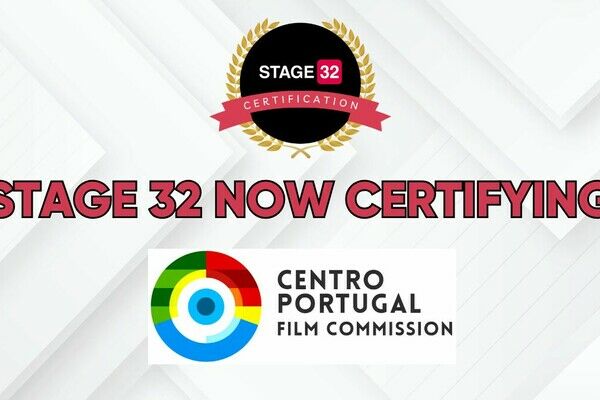
Stage 32 Now Certifying Centro de Portugal Film Commission!

How Modern Franchises Became Our New Religion

Happy Thanksgiving From Stage 32: We Are Thankful For YOU

Want Success in the Entertainment Industry? Start Writing Your Own Narrative

Coffee & Content: Why Your Pitch Needs to Be Human
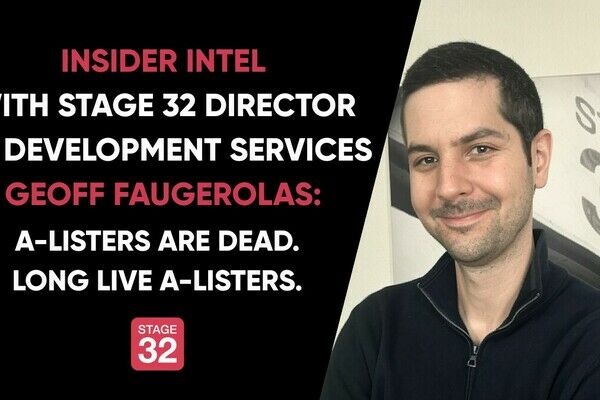
Insider Intel: A-listers Are Dead. Long Live A-listers.

Insider Intel: The Studio War & The Rise of Indies

Insider Intel: 2025- Your Year of Breakthroughs (+ What's Coming in 2026)

Stage 32 Featured at the 43rd Torino Film Festival!
